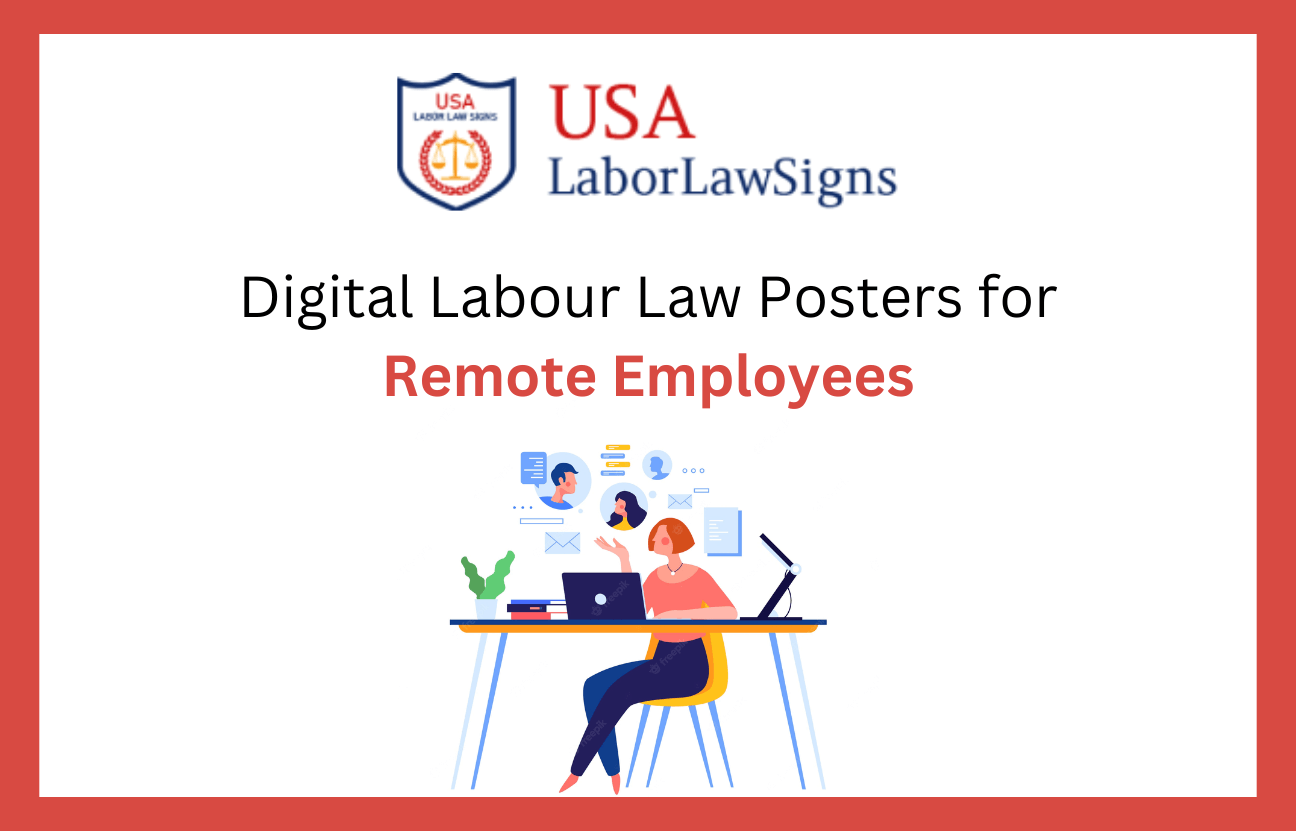Digital Labour Law Posters for Remote Employees

Digital labour law posters for remote workers? It’s one of many compliance problems as more people work from home.
Momentum grew for workers to return to work. Employers updated safety standards, offices filled up, and hybrid work models became common.
The COVID-19 outbreak and employees’ desire for flexibility slowed efforts to bring people back to work. Employment law compliance difficulties arise.
Employers need rules and processes to manage a remote workforce in 2022. Below are remote employee compliance considerations for Digital labour law posters.
Payment of Permitted Business Expenses
Digital Labour law posters must be accessible. You get it.
What happens when employees aren’t present? Many companies put labor law notices on their intranet.
The DOL published a notice in 2020 concerning digital labour law posters. The DOL says electronic postings are appropriate when:
- Digital postings must be accessible to employees.
- Employers must routinely email workers.
- Employees must know which posts apply to them.
- Employers must display them online.
- Employers should still give remote workers access to break rooms and digital labour law posters, even if there’s no physical space.
Minimum wage, timekeeping
Many employment rules, including minimum wage, require employees to work a particular number of hours to qualify.
You have a Berkeley, Calif., location. Minimum wage law requires qualified employees to work in the city for at least two hours each week. If an employee works from home, they may not qualify for the city’s minimum wage but their own.
Many home-based workers aren’t paid minimum wage. The growth of remote workers prompted the DOL to release advice for recording their hours.
Federal officials advised companies to pay for all hours worked, even those “not requested but suffered or allowed.”
Tracking hours is harder for remote workers. The DOL says employers must “reasonably investigate” unplanned hours.
Employers are recommended to implement unscheduled time reporting methods. Employers won’t have to examine unreported hours to “impractical lengths.”
The DOL urged firms not to discourage precise timekeeping. Under FLSA, employees can’t forgo their pay.
FMLA
Employees who take advantage of remote employment conditions are able to, well, work from anywhere they like, which raises FMLA compliance concerns for their employers (FMLA).
If your business has 50 or more employees within a 75-mile radius, you’re required to comply with the FMLA. Assume you have workers who live more than hundred and fifty kilometers distant from you.
Remote workers may be disqualified if their residence is more than 75 miles from the company’s headquarters. No, you have it wrong. Employees who work from home may still be eligible for FMLA since their house is not considered a “worksite” under the law.
Employers should ensure that their remote workers may take FMLA and state-mandated leaves if they qualify.
Paid Leave Laws
Paid leave laws, like minimum wage rules, often require employees to have worked a certain number of hours in the jurisdiction before they are eligible for benefits.
Consider the case of a company whose headquarters are situated in a jurisdiction where employees are entitled to paid sick leave.
To be eligible, workers must spend at least 80 hours a year in that area. It’s possible that a company wouldn’t have to provide paid sick leave to a worker who does remote work in a nearby area as long as they didn’t clock 80 hours.
In the past few years, many new workers have never even set foot in the workplace. Companies with several offices should research the paid leave policies in each of those cities to see how they might apply to workers who do all of their work from home.
Final words
Despite the epidemic, American production doubled. The event sparked a wider conversation about business culture, compensation, and more, even though management usually prefers it when workers are there.
As remote or partially remote work becomes the norm, it is important for companies to assess the legal complexities associated with accommodating this trend.
